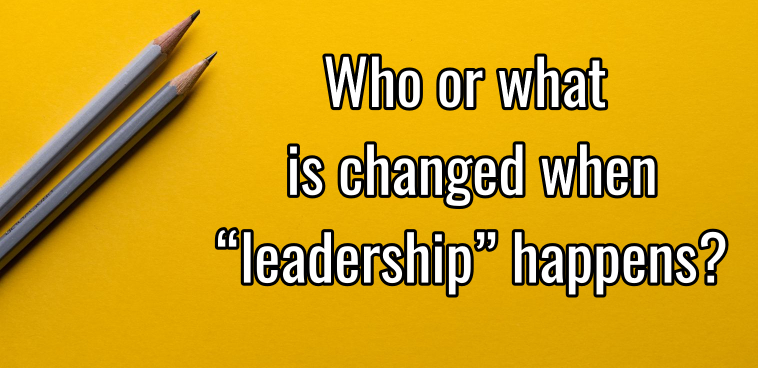Sign up for our daily leadership news briefing today, free.
What is the purpose of leadership, a leader’s “reason for being” day in and day out?
Over the years I’ve engaged hundreds of leaders, thought leaders, and authors about answers to this question of leadership and management theory.
Which leadership theories can we look to in order for leaders to be successful? Clearly, a leader’s sense of purpose is not something learned in business school.
Some think that leading with purpose is to deliver results through others, while some believe the leader’s purpose is developing more leaders. Others see the leader’s primary responsibility as to make the vision come to fruition.
What is missing for me in most of these responses is the answer to this vital question: “To what end?” Who or what is changed when “leadership” happens? Who is being served when authentic leadership efforts are applied?
In 27 years of consulting with and coaching senior leaders, I’ve never observed self-serving leaders positively affect my “big three” outcomes: employee engagement, customer service, and results and profits. Self-serving leaders might get short-term results but, over the long term, each of the big three are negatively affected by selfish leaders’ actions.
Purpose-driven and effective leaders are able to arm their teams with a sense of individual purpose, separate from their own, that also aligns with their company’s organizational purpose. Good leaders create opportunity for others, and assist in creating personal goals for those underneath them.
Purpose-driven and effective leaders are able to arm their teams with a sense of individual purpose, separate from their own, that also aligns with their company’s organizational purpose. Good leaders create opportunity for others, and assist in creating personal goals for those underneath them.
In my book “The Culture Engine,” I pose three questions to help formalize a servant sense of purpose. Those three questions, adapted to effective leadership, are:
- What do effective leaders do?
- Whom do effective leaders serve?
- To what end do effective leaders serve? How do they improve the quality of life and career of their key customers (team members)?
By combining my answers to these questions, here’s my best thinking on the purpose of leadership today:
“Effective leaders hold themselves and others accountable to high standards for results and values, validate efforts and contributions, and ensure cooperative interaction and performance in a trusting, respectful work environment.”
How would you answer those three questions?
Subscribe to my free twice-a-month newsletter. Subscribers enjoy free resources including a preview of my Amazon best-seller, “The Culture Engine,” which helps team and company leaders create a powerful, purposeful, positive, productive work environment.
And, subscribe to my YouTube channel, where you’ll find more short, crisp, and clear episodes of my “Culture Leadership Charge” video series.
If you enjoyed this article, sign up for SmartBrief’s daily leadership news briefing. We also have more than 200 industry-focused newsletters, all free to sign up.
